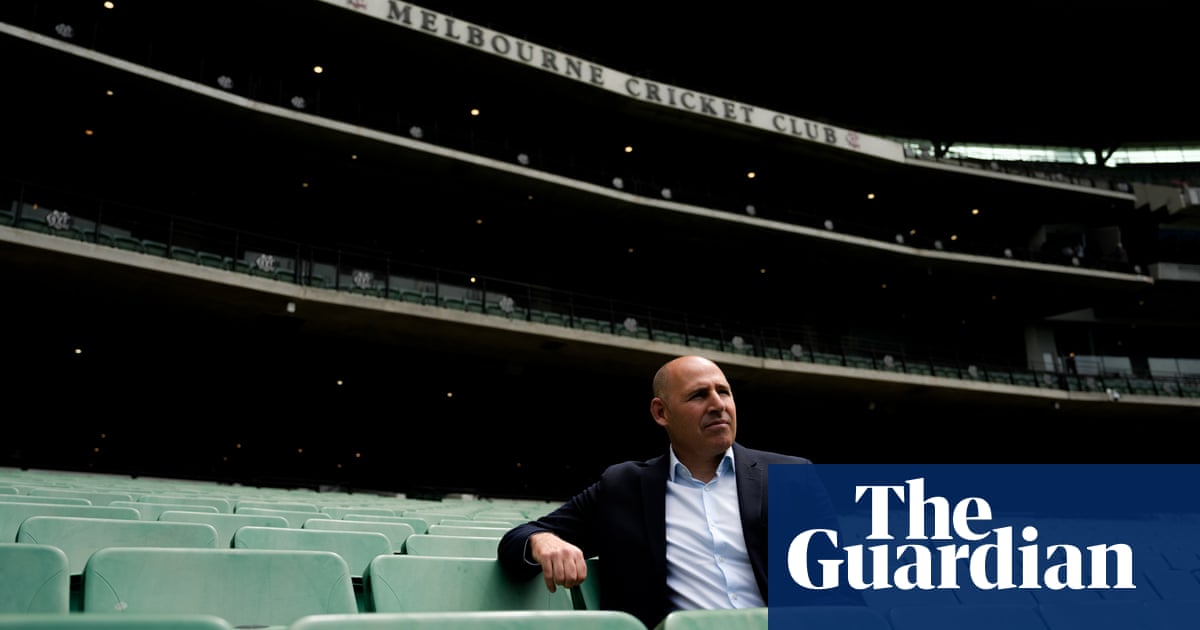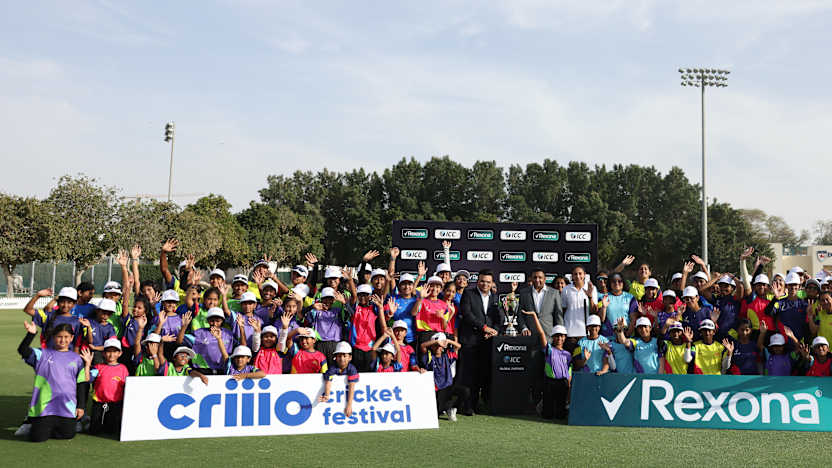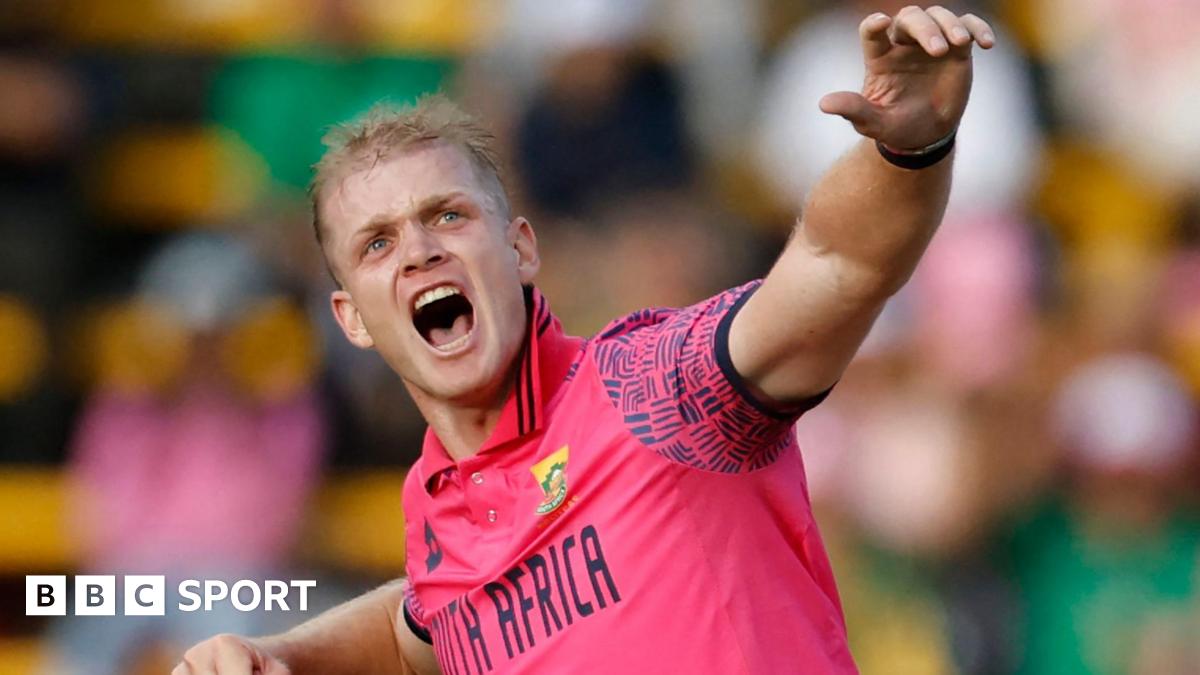Cricket Australia CEO Nick Hockley: ‘I’m not very good at enjoying the cricket’ | Jack Snape

“I feel a bit uncomfortable about this, because … it’s not about me,” says Nick Hockley. The outgoing Cricket Australia chief executive has just five months left in the sport’s most demanding role, yet he continues to avoid the limelight. “I know I’m nearing the end, but I’ve still got quite a lot to do.”
The Birmingham-born son of a doctor father and optometrist mother turned 50 three weeks ago. By the time he leaves CA in March, it will be almost five years since he was the somewhat surprising appointment as interim, then permanent, CEO. “I didn’t want to do a big party,” he says of his birthday. “Maybe in March, or an end of season celebration.”
There will likely be much to celebrate after a highly-anticipated summer which involves a men’s series against India and a women’s Ashes against England – Australian cricket’s traditional enemy and its emerging challenger. The absurdity that an Englishman was handed responsibility for Australia’s favourite pastime – in a period of great need – is not lost on Hockley, or his friends. “My mates in England just take the piss out of me all the time,” he says.
Yet Hockley’s ties to Australia run deep. While studying at Oxford University, he lived with three Australians and two of them remain close friends. The other, Ian Tucker, died following a brain injury on the rugby field in 1996.
Within 12 months of that tragedy Hockley was working in London with the corporate finance practice at PWC and soon sought a temporary transfer to Sydney. There he met his Australian wife Lauren and the couple initially settled in the UK, as Hockley worked on the 2012 London Olympics.
“Part of the deal with Lauren was, we got married in Sydney in 2010, and then after the Olympics we would emigrate,” Hockey says. “I came out and met a lot of people in sports in Australia [in 2010], and they said ‘well it’s quite difficult now, wait till you’re on the ground’.”
Back in London, he finally secured a Skype interview with John Harnden – who currently runs Melbourne and Olympic Parks, and has been a Cricket Australia board member for much of the Hockley era – who was chief executive of the then-imminent 2015 men’s Cricket World Cup in Australia.
“It was two o’clock in the morning just before the London Olympics, I just got back from the Olympic Park, and Jemima my daughter was six months old, and she was screaming, and I couldn’t keep her quiet,” Hockley recalls.
Despite – or perhaps thanks to – his daughter’s contributions, Hockley got the job. He was made responsible for the 2020 women’s T20 World Cup in which 86,174 watched the final, a breakthrough moment for women’s sport and a precursor to the Matildas buzz that accompanied the 2023 Fifa World Cup.
Then he was thrust into the chief executive role just as Covid took hold, replacing Kevin Roberts who was ousted after just 20 months. Cricket in Australia was still reeling from 2018’s sandpaper controversy, head office had made 40 staff redundant and the pandemic was about to demolish the peak of the game’s revenue cycle involving local men’s Test tours by India and England.
Hockley has managed to stabilise the game, signing significant broadcast and player pay deals that set up Australian cricket for the next so-called strategic cycle, all while largely staying out of the spotlight. “It’s been the privilege of my life to hold this office, and I’ve still got a lot to do,” he says. “To get to work on something that so many people care about – I believe that any business, even going back to my corporate finance work – it’s all about relationships.”
While financial concerns have been rarely absent, Hockey’s biggest challenges came from elsewhere. He cites Justin Langer’s departure as coach – when he was not offered a long-term contract and chose to immediately resign – and the resignation of men’s Test captain Tim Paine, after explicit messages the wicketkeeper exchanged with a Cricket Tasmania employee became public.
“The coach transition, and also Tim’s situation, they’ve really been the hardest, because I had such admiration and respect [for them], and also they’ve just been really difficult situations. The former, we’ve had to make some tough decisions, but then the latter, where someone that you’ve worked really, really closely with is having a difficult time, that’s been the hardest part.”
Paine’s 2022 book was critical of Hockley’s handling of the saga and the captain’s ultimate resignation, and the Tasmanian retired from first class cricket soon after. He has returned to elite cricket in the past year, and was last week named head coach of the Prime Minister’s XI team.
after newsletter promotion
Hockley says he stays in contact. “Behind the scenes, we’ve really tried our best to support him, and I couldn’t be happier that he’s making great strides in coaching, and he’s in and around the game. He’s got so much to offer, and I really enjoy his company. I’d like to think that, hopefully he would say that I really tried to invest in the relationship through what was a very difficult time.”
Hockley plans to stay in Sydney and seek work there, after a break. The 2027 men’s and 2029 women’s rugby union World Cups appear a natural fit for the former hooker and English students representative who once played in front of 75,000 at Twickenham. And in the lead-up to the Brisbane 2032 Olympics his services will no doubt be in high demand.
It was therefore a surprise when reports emerged the Cricket Australia board didn’t consider him to be the right fit as a long-term CEO. Hockley dubs this “conjecture”, and declines to address it in detail.
“It’s really, really important to me that you leave the place stronger than you found it, but also that there’s a really smooth handover. The bigger question for me was whether I do another whole strategic cycle, or whether I take this incredible experience and go on today to do other things,” he says.
Apart from state associations’ grievances about the direction of cricket and share of funding, the most direct criticism Hockley has received has been about his public performance. “I think I’ve learned a huge amount in the role, and there are bits of the role that I love, and there’s bits of the role that I find difficult, but I think that’s the same for anyone in any discipline,” he says.
The Englishman believes the biggest challenge for the game today is to make sure it reflects “contemporary, multicultural Australia” and supports areas like women’s cricket. “What you’ve seen is incredible growth, and there’s real momentum, but we’re not there yet. We’ve made strong advances on pay, but it’s not truly equal pay yet,” he says.
Inside Hockley’s modest Jolimont office, within sight of the MCG, a sequinned pink and purple costume of a cartoon woman shaped like a cricket bat grabs your attention. It was worn by the backing dancers supporting Katy Perry at the landmark 2020 World Cup final and now occupies the corner.
Sitting opposite, Hockley adds one final thought. “It feels a bit premature, but I’ve been very fortunate, you’ve helped me reflect a bit,” he says. “One thing I’m not good at is celebrating our successes, I’m just very like ‘on to the next thing’. But I’m getting better at trying to celebrate everyone’s hard work.
“And then the other bit is I’m not very good at enjoying the cricket and the event days, because you feel very responsible, and you just want to make sure everything’s right. So I’m determined to enjoy this summer.”
Related
‘Listen from one ear, ignore from the other’: Former India…
India's Rohit Sharma and Mohammed Shami (AP Photo) NEW DELHI: Former wicketkeeper-batter Syed Kirmani has expressed his opinion that experienced fast bowler Mo
India faces New Zealand in budding rivalry at Champions Trophy…
State AlabamaAlaskaArizonaArkansasCa
ICC and Unilever announce landmark partnership on International Women’s Day…
The two-year partnership, kicking off at this year’s Women’s Cricket World Cup in India and running until the end of 2027, marks the world cricket governing
IPL 2025: Mumbai Indians sign Corbin Bosch as replacement for…
Mumbai Indians have signed South Africa all-rounder Corbin Bosch as a replacement for his injured countryman Lizaad Williams for this year's Indian Premier Leag











